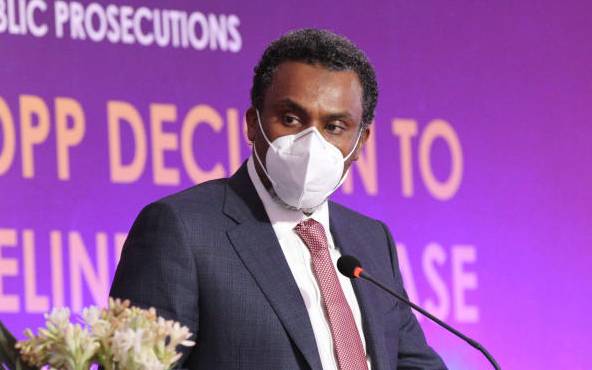×
The Standard e-Paper
Smart Minds Choose Us

The Office of the Directorate of Public Prosecutions (ODPP) will soon be more independent if proposals in a Bill on changes to the Building Bridges Initiative are implemented.
The Constitution of Kenya Amendment Bill, 2020 proposes the amendment of Chapter 15 of the Constitution to require constitutional commissions to enhance corporate governance practices in the management of the affairs of the commissions and independent offices and to include the Director of Public Prosecutions (DPP) as an independent office.